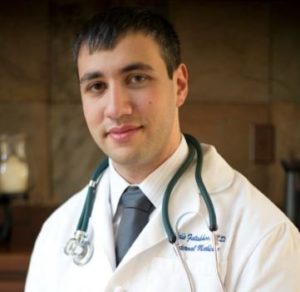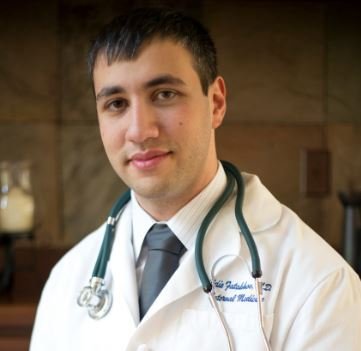Probiotics and Weight Loss

By Eddie Fatakhov, M.D.
What is a probiotic?
Probiotics are not only live microorganisms found in supplements and some fermented foods such as yogurt and pickles, but they have also been found to have a variety of health benefits. These benefits include vitamin K and B production, the breakdown of insoluble (indigestible) fiber, immune system support, the improvement of mental health, improvement of heart health, reduction of certain allergies and skin conditions, and (possibly one of the most sought after effects) the reduction of belly fat.
What is the link between probiotics and body fat?
There are large populated families of primarily friendly microorganisms (bacteria) living in your digestive system, two of which are families tied to the management of body fat – bacteroidetes and firmicutes. According to a wide variety of studies, body weight is related to the balance of these two families of bacteria.
These studies look at the difference between the gut bacteria in normal-weight people versus overweight or obese people. The major difference found was that obese subjects had an imbalance in their firmicute levels versus their bacteroidetes.
Which probiotics help you lose weight?
Not all probiotics are created equal. While there are many strains available, only a few have been proven to have positive effects on weight. One strain that studies have found to assist in weight loss is the Lactobacillus family. Studies have found the following to be true:
- When paired with diet and exercise, eating yogurt with Lactobacillus fermentum or Lactobacillus amylovorus helped to reduce body fat by 3–4% over a six week period.
- The effect of Lactobacillus rhamnosus supplements was measured on 125 subjects for weight loss and weight maintenance. The study found women taking the probiotics over a three month period lost 50% more weight than the placebo group.
- Lactobacillus gasseri is one of the most productive probiotic when it comes to weight loss. This specific probiotic inhibits dietary fat absorption. This means the calories your body would otherwise “harvest” are excreted instead.
How can probiotics help you lose weight?
While research is still ongoing, here are some of the ways probiotics are thought to assist in weight loss:
- They release GLP-1. Probiotics may play a part in the release of GLP-1 (appetite-reducing hormone). Studies have shown increased levels of GLP-1 may actually help you burn calories and fat.
- They increase production of ANGPTL4. Levels of the protein ANGPTL4 may rise from probiotic use. This production might actually lead to decreased fat storage.
Are probiotics safe?
There are many types of probiotics available today. Because of this, it’s good to remember that some have a lot of research behind them and some do not. Here are some things to know before you buy a probiotic:
- Mild side effects are possible such as gas or bloating within the first few days of use.
- All foods with probiotics are not created equal. While these foods usually have good levels of live bacteria – “live and active cultures” yogurt, kefir, aged cheeses, brined pickles, sauerkraut, tempeh, and miso – products that claim to have probiotic benefits might not. Enriched juices, cereals, and snack bars may have less than promised levels or weakened forms of the organisms.
- Probiotics might not be safe for everyone. People with weakened immune systems, such as cancer patients in treatment, should avoid probiotics.
- Expiration dates and storage are very important. Because probiotics are living organisms they have a limited shelf life. Using probiotics before their expiration dates and following the suggested storing advised on the product label maximizes their potency.
Before taking any supplements we recommend talking to your doctor to ensure you are taking one that is right for you.
About Eddie Fatakhov
 Eddie Fatakhov, M.D., a.k.a. Dr. Fat-off, is a Board-Certified Physician, Nutritionist, and author of the new book, “Dr. Fat-Off: Simple Life-Long Weight-Loss Solutions.”
Eddie Fatakhov, M.D., a.k.a. Dr. Fat-off, is a Board-Certified Physician, Nutritionist, and author of the new book, “Dr. Fat-Off: Simple Life-Long Weight-Loss Solutions.”
Email him at eddie@drfatakhov.com or visit his website Eddie Fatakhov, MD. You can also follow him on Facebook and Instagram.

